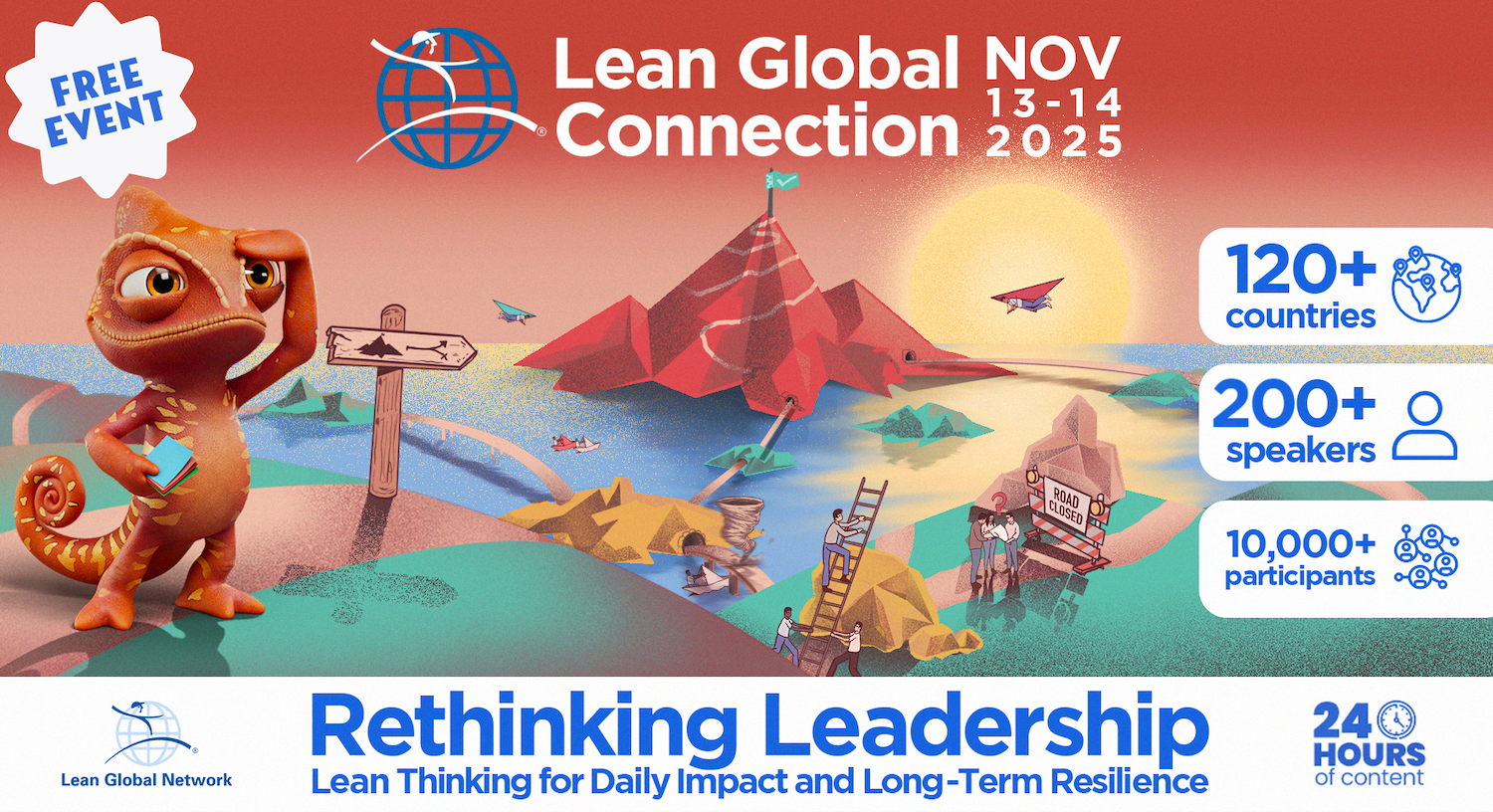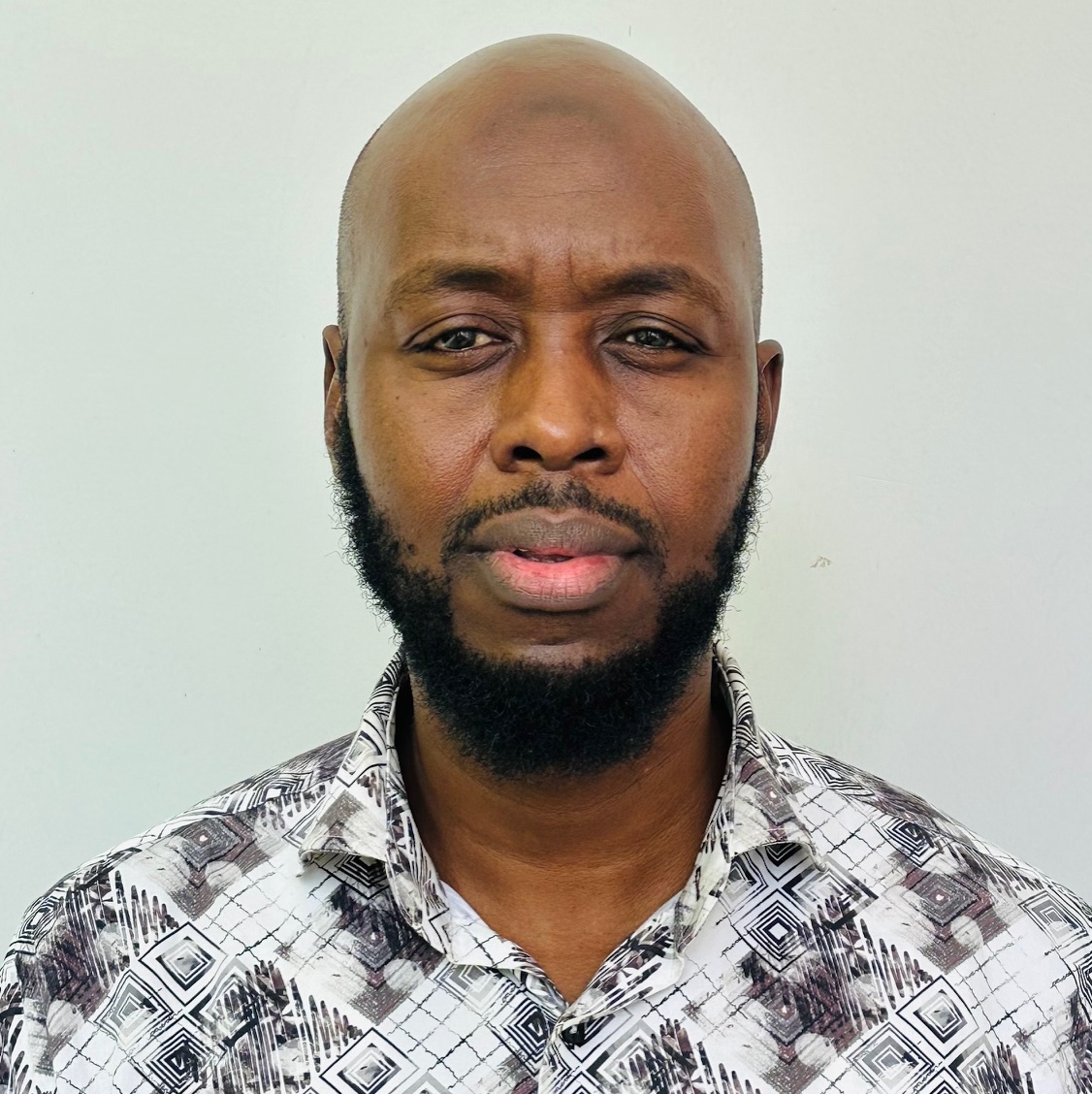FEATURE — Lean can work in one of the most difficult parts of the world—war-torn Somalia—and it can help you in challenging contexts, too.
Words: Abdinoor Hassan with Andrew Parris
Humanitarian and development NGOs operate in some of the most demanding environments in the world. They are tasked with saving and improving lives under conditions of volatility, insecurity, and limited infrastructure. They face shrinking budgets and growing needs. NGOs rarely have sufficient overhead, stable supply chains, or long planning horizons. Instead, they must constantly adapt, finding ways to do more with less, while being accountable to both donors and the vulnerable communities they serve.
In Somalia, these challenges are magnified by conflict, displacement, and fragile institutions. The East African country remains within a complex and protracted crisis due to active conflict, the presence of non-state armed actors, the persistent presence of communicable diseases and climate-driven onset shocks—including droughts and flooding. Conflict and natural disasters continue to drive displacement and constrain the availability of resources, while the presence of armed groups severely impedes the level of access and support provided by humanitarian actors.
MEDAIR SOMALIA
Medair is a Christian humanitarian organization that responds to conflict, disease, and disaster so that the world’s most vulnerable and hard-to-reach people can live with dignity and hope. In Somalia, Medair delivers essential health, nutrition, and WASH (water, sanitation and hygiene) services to displaced, urban and rural communities across South Central Somalia. We support 12 health facilities in several regions and deploy mobile teams to serve hard-to-reach villages.
For Medair Somalia, Lean is essential because it enables our teams to be as effective, efficient and agile as possible in this extremely challenging context.
OUR FIRST STEPS
We first embraced Lean at Medair Somalia in January 2018 when Andrew trained eight members of the team based in Nairobi, including the next two country directors, who have strongly supported Lean.
This initial seed took root. Medair Somalia country director Richard Magondu began applying Lean Thinking immediately. Shortly after the initial training, he explained to Andrew: “Now, every time someone wants to do something new, we always ask, ‘What value does it add for the customer?’” Over the next few years, Andrew trained 27 Medair staff and leaders (and seven partners) with a one-day Lean training and four with a one-week Lean training.
Early on, we demonstrated the value of Lean Thinking by conducting a one-day Lean training in the capital Mogadishu, with 22 Medair staff and leaders, and five partner participants. The next day we conducted a Kaizen workshop, during which we mapped and streamlined three key processes: volunteer training, monthly financial reporting, and the beneficiary feedback response mechanism. The initial training and improvements created a shared understanding of Lean and demonstrated its potential to transform work.
As Senior Project Manager, I took both training courses and became the Lean Champion in Medair Somalia. I trained 33 of my colleagues. While keeping my main job responsibilities and with support from the country director, I then added my Lean Champion role to my job description, so that I could devote the time and attention to it that I needed.
IMPACT STORIES
Here we describe four important improvements that we facilitated to increase Medair’s ability to serve the most vulnerable.
Supply Chain: It took too long to get life-saving supplies from port to patient. To drastically reduce delays, we mapped the entire process. Our analysis revealed critical bottlenecks, including protracted port clearance and inefficient warehouse processes. Implementing Lean led us to partner with more effective clearance agents, reorganize our warehouse for optimal workflow, and engage local transporters. We slashed the total lead-time by more than half. This streamlined approach ensured that essential medicines and nutritional supplies reach vulnerable communities weeks faster than before.
Fleet Management: We undertook a strategic, comprehensive fleet management improvement initiative to address critical challenges, including staff security risks from aging vehicles, spiralling fuel costs, and uncoordinated movements. Through the phased replacement of high-risk vehicles, the introduction of strict standard operating procedures, and the implementation of data-driven tools like mandatory movement planning and digital log sheets, we significantly bolstered accountability and safety. This systematic overhaul successfully transformed fleet operations into a more secure, cost-effective, and efficient pillar of Medair’s humanitarian response.
Payments: Medair faced critical delays in financial report submissions and payments that hampered primary healthcare operations and demotivated staff. The delays were caused by protracted budget approvals, lengthy reviews, and a manual payroll system. We implemented a transformative set of changes, harmonizing financial procedures, shifting to electronic payments, and instituting monthly spot checks. We also coordinated process improvements with our partners. These changes improved efficiency by 50%, slashed the time for financial review and payment from one month to just two weeks, and reduced payroll processing from one month to a mere four days. These improvements have significantly enhanced financial accountability, ensured timely funding for health incentives and operational costs, and directly strengthened our strategic ability to deliver consistent, reliable support.
Crisis Response: The Somalia Joint Response (SOMJR) is a crisis response mechanism involving several NGOs and local partners. It faced a fragmented approval process that each member implemented differently. This led to inconsistent triggering criteria, prolonged internal reviews, and critical delays of up to two months in approving and disbursing funds, which exacerbated human suffering during small-scale crises. We applied lean concepts and tools to harmonize the process. We revised guidelines to cut approval time from seven days to three. We also integrated crisis agreements into main project documentation to eliminate bureaucratic bottlenecks. This standardization yielded a dramatic 90% reduction in alert approval times—from two months to just one week—and a 75% faster fund disbursement, slashing the wait from three weeks to four days. These improvements have directly enabled six timely, life-saving responses and ensured swift aid reaches affected communities when they need it most.
WHAT WE LEARNED
Our experience has taught us a lot. First, it’s proven to us that Lean works even in the most challenging and unpredictable places. It’s also taught us that the key success factors are coupling the tools with the cultural aspects of a transformation, clear support from leadership, and the presence of a champion who’s personally fully committed to Lean.
We have realized that Lean is not about top-down orders but about creating a structured system that empowers every level of the organization to contribute. Of course, we know that empowerment is impossible without capability: equipping all employees with a common language and toolset for problem solving turns them from passive participants into active improvers.
Finally, we have learned that innovation thrives in collaboration, not in isolation. Creating a dedicated space for shared learning breaks down silos and builds a collective culture of improvement.
To learn more about Medair’s lean work in Somalia, join Abdinoor and Andrew for a more detailed presentation at the Lean Global Connection 2025. Their session is on 14 November at 11:30 AM UTC. Register for the event for FREE here.

THE AUTHORS


